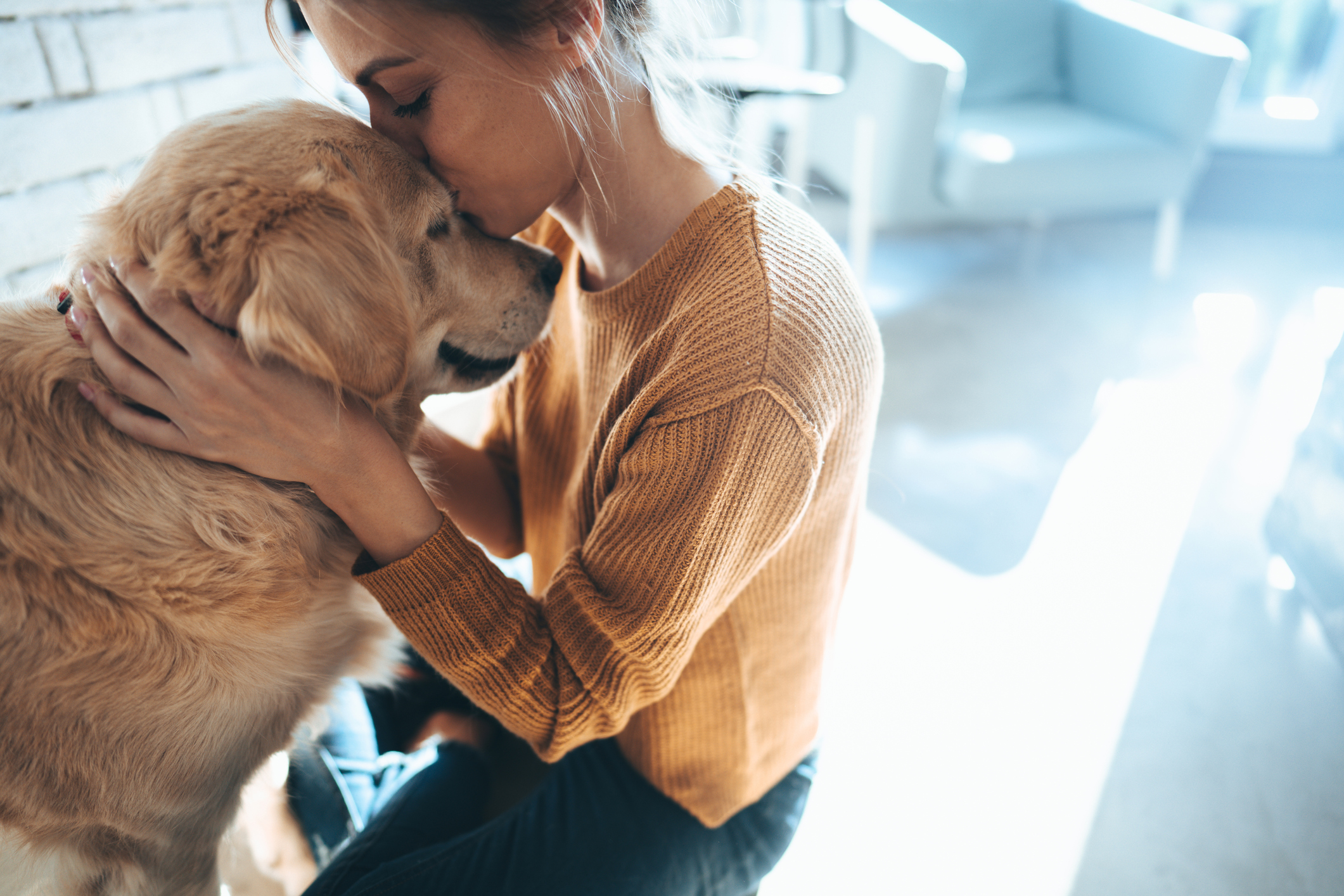Being a Dog Lover May Be in Your Genes

Some might call themselves “Dog lovers,” and some might not. Dogs have been considered man’s best friend for decades and have been by our side since they were first domesticated almost twenty-nine thousand years ago. For the past twenty-nine thousand years, humanity has been fascinated with dogs, keeping them as guards, shepherds, hunting partners, or pets.
What if there is more to being a dog lover than a just preference?
Given the time humans have spent alongside dogs, it would be safe to say that it goes beyond like. New research suggests that loving dogs is in your genes.
Find out if your love for dogs comes from innate instinct built through thousands of years.
The Dog Loving Gene
The human-canine bond is centuries old and has survived through that entire time to the point that almost 50% of households own a pet dog. Dogs have been beside humans for many purposes, including herding, hunting, military, search, and sledding. For years, people have characterized themselves as dog lovers or otherwise. There might be more to your affection for dogs than you thought.
Research shows that we might feel the same for our dogs as we a mother would for a child. This is because dogs cause the release of the hormone Oxytocin in our brain, which creates feelings of trust and love and reduce stress levels.
There might be a genetic component to loving dogs. It is possible that over the years, as dogs began to be domesticated by our ancestors, they were seen as part of the family rather than an accessory. Since dogs were considered part of the ‘herd,’ it may not be a mistake to think that oxytocin was released whenever they would look at them.
Over time, this stimulus for oxytocin release got incorporated into the human genome and caused the release of oxytocin whenever we would look at dogs, causing us to love them.
However, much of this is still just speculation. However, in 2019, research proved that loving dogs is in your genes.
The research team consisted of researchers from the University of Liverpool and Uppsala University and was led by epidemiologist Tove Fall. The researchers used twin studies to conclude if genetics had a role in the affection for canines.
Twin studies allow researchers to compare and assess behavioral actions with genetic data with individuals that carry the same entire genome (identical twins) or half of the same genome (non-identical twins), helping researchers to conclude if genetics influences certain behavioral aspects.
The research showed conclusive results with a study group of more than fifty thousand twins and information available on thirty-five thousand of them.
The researchers compared the affection of dogs in the twins with genetics and environmental factors, and the results concluded that genetics had more influence than environmental factors. Genetics contributed 51% for men and 57% for women when it came to owning a pet dog.
This meant that out of twins that shared genetic information, at least one twin out of the pair would have an affection for dogs. In simple terms, it meant that loving dogs is in your genes.
While it was left inconclusive as to which of our genes create affection in us for dogs, the research proved why we love dogs so much.
The genetic basis for our love of dogs could also explain the health benefits that we get from dogs, such as better heart health and decreased anxiety and depression. Although most of it is associated with the release of oxytocin, it can be predicted that people with the “Dog Loving Gene” release more oxytocin than people without it, leading to better health.
Do Dogs Have a Human Loving Gene?
Contrary to their appearance, dogs and humans have a lot of similar genes. Among them, they share the oxytocin gene, which means that when dogs look at humans, they release oxytocin, which makes them trust and love us.
Research has studied the effect of three genes and how they affect the affection held in dogs for humans compared to wild species of dogs. The four genes that were compared were:
• Melanocortin-2 receptor (MC2R)
• Oxytocin
• Oxytocin Receptors
The MC2R gene is involved in cortisol production (The stress hormone). The less genetically influenced a dog is to stress and cortisol production, the more affectionate he is towards humans. While wild dogs and wolves had greater MC2R gene expression, domestic breeds had less. One research suggests that dogs’ domestication began with breeds less prone to stress.
Another difference between domestic and wild dog breeds was the expression of oxytocin and oxytocin receptors. These genes were more highly expressed in domestic breeds than wild types, meaning domestic dogs tend to view humans more favorably.
Hence, it can be said that loving humans is a part of a dog’s gene.
To Wrap Up
Love is often said to be a two-way street, and it is the same for human-dog bonds. Humans are instinctively affectionate towards dogs. You might be unable to help yourself because loving dogs is in your gene. The same is true for dogs. We love dogs, and dogs love us. Similarly, certain canines we don’t love (wild wolves) and these canines don’t care for us either. Hence, it’s a two-way street.
While loving dogs is in your genes, there is no specific research to show that hating dogs can also be in someone’s genes. If you see someone who hates dogs (the possibility is low), it might not be because of innate instinct.
If someone asks how much you love dogs, tell them, “I love them from my core.”
